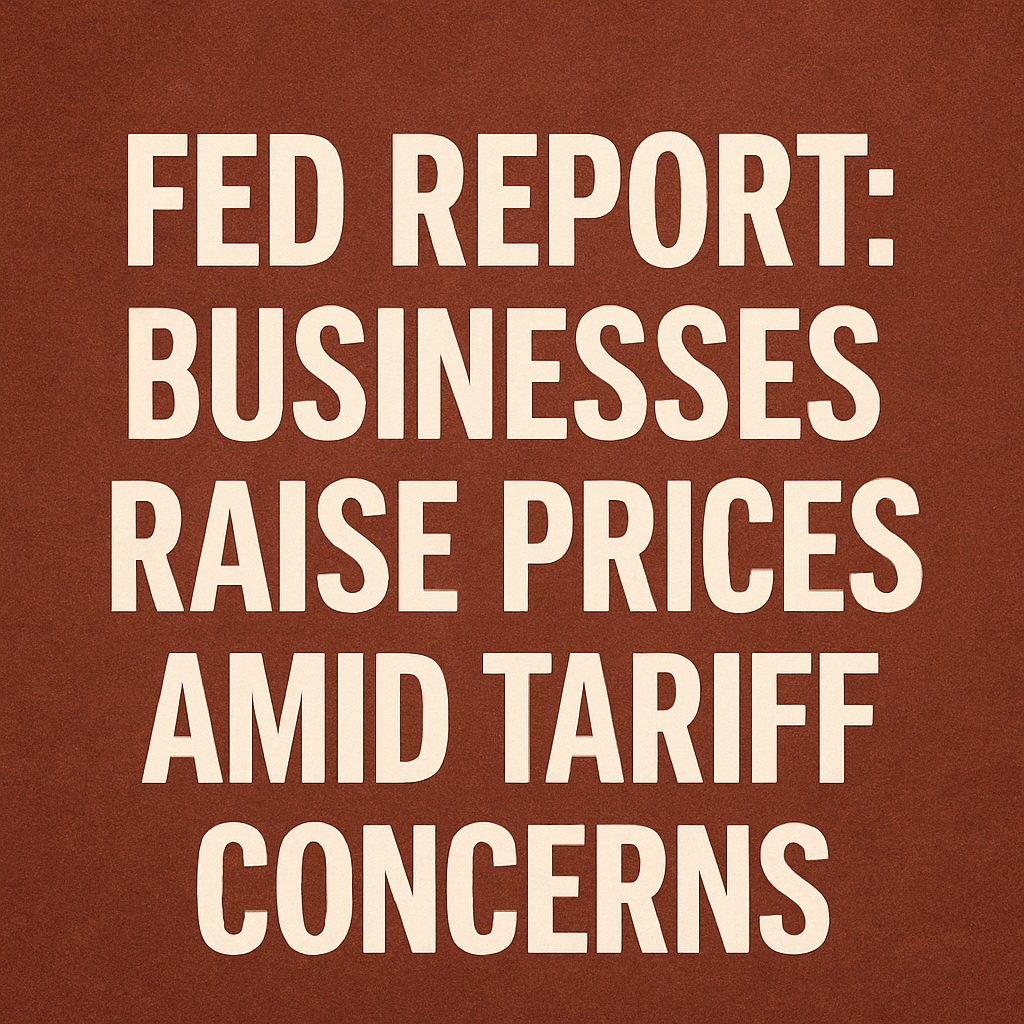Fed Report: Businesses Raise Prices Amid Tariff Concerns

As the U.S. economy grapples with fluctuating tariff levels, a report from the New York Federal Reserve has revealed that a substantial number of companies are raising prices on goods not directly impacted by these tariffs. This behavior, identified in a recent survey, raises concerns about the potential for rising inflation and the broader economic implications of increased pricing strategies.
Survey Insights and Economic Context
The report, based on a survey conducted from May 2 to May 9, 2023, targeted approximately 110 manufacturers and over 200 service firms in New York and New Jersey. At this point, the Trump administration had not yet adjusted tariffs on Chinese goods from 145% down to 30%, and a significant increase in tariffs on steel and aluminum had just taken effect, from 25% to 50%.
Economists and market analysts are interpreting these price hikes as a tactical response to the prevailing uncertainty surrounding trade policy. In light of the ambiguous tariff landscape, many businesses appear to be preemptively adjusting prices not just on imported goods, but also on domestic items, thereby exacerbating inflationary pressures.
Strategies for Price Adjusting
According to the survey data, many companies reported that they had intentionally raised prices on certain products irrespective of their exposure to tariffs. An example cited in the Beige Book report mentions a “heavy construction equipment supplier” that increased the prices of non-tariffed goods as a means to safeguard profit margins against anticipated costs associated with impending tariffs.
- Tariff Pass-Through Rates: The survey highlighted that most businesses have aligned their pricing strategies to offload tariff costs onto consumers. Specifically, around one-third of manufacturers and approximately 45% of service-oriented firms reported fully passing these increased costs to consumers.
- Inflationary Implications: The Congressional Budget Office has warned that these widespread pricing modifications could contribute significantly to inflation, as entities adapt to the wider economic uncertainties surrounding trade negotiations.
The Broader Economic Implications of Price Increases
Economists express concern that the trend of raising prices beyond tariff-related goods signals a deeper anxiety about future economic conditions. According to Susan Ariel Aaronson, a research professor at George Washington University, businesses are using the “cover of uncertainty” to adjust prices in light of unpredictable tariffs. She stated, “Companies feel pressure to keep up with changing economic conditions, which could ultimately lead to a general inflationary environment if left unchecked.”
Rebecca Homkes, a lecturer at the London Business School, reinforces this notion by asserting that businesses often make price adjustments as a desperate last resort after exploring other avenues. “Whenever companies face uncertainty in cost structures, they will inevitably turn to price increases as part of their strategy to maintain profitability.”
Strategies in Response to Economic Uncertainty
This phenomenon is reflected across various sectors, causing companies to carefully assess their pricing frameworks. With limited opportunities to alter prices throughout the fiscal year, many firms are forced to consider potential shifts in tariff applications while making pricing decisions. Key considerations include:
- Assessing product commonality: Products often ordered together may see price increases if one is subject to tariffs, even if the other is not.
- Predictive cost adjustments: Firms may need to raise prices preemptively in anticipation of new tariffs or trade barriers.
Regulatory Developments and Future Considerations
The broader implications of these findings align with ongoing discussions about trade policy within the U.S. As the Trump administration prepares for a legal battle over the tariffs’ constitutionality, the businesses’ heightened pricing strategies may reflect their anticipation of further tariff adjustments in the near future.
The evolving landscape of international trade, coupled with the unpredictability of tariffs, highlights the critical need for firms to stay adaptable in their pricing strategies. As companies navigate this complex environment, economists will continue to monitor their decisions to ascertain the ramifications on inflation and overall economic growth.
Conclusion
The findings of the New York Federal Reserve shine a light on the intricate relationship between tariff policy and corporate pricing strategies. As businesses proactively respond to the uncertainties surrounding trade, the potential for inflation looms larger, raising questions about the stability of the economic climate in the months to come.
About the Author: Sasha Rogelberg is a reporter and former editorial fellow on the news desk at Fortune, specializing in retail and the intersection of business and popular culture.
Source: fortune